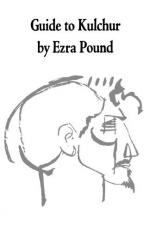
|
| Name: _________________________ | Period: ___________________ |
This test consists of 5 multiple choice questions, 5 short answer questions, and 10 short essay questions.
Multiple Choice Questions
1. What is the first essay in Section II?
(a) "Great Bass."
(b) "Tradition."
(c) "Vortex."
(d) "Ici Je Teste."
2. What types of artists are the subject of the author's observations in "Guide?"
(a) Performance artists.
(b) Installation artists.
(c) Sculptors.
(d) Painters.
3. Which sort of ideas are the men of today almost exclusively concerned with, according to Pound?
(a) Ideas that are meant to lead culture to evolve.
(b) Ideas that guide action and serve as rules of conduct.
(c) Ideas that guide action and serve as rules of conduct.
(d) Ideas that do not actually exist.
4. Who is the author of "Guide to Kulchur"?
(a) T. S. Eliot.
(b) Ezra Pound.
(c) W. E. B. DuBois.
(d) William Shakespeare.
5. What does the author see as swiftness in a given field?
(a) Being strong.
(b) Being genuine.
(c) Being compassionate.
(d) Being a leader.
Short Answer Questions
1. How many essays are contained in Section I?
2. What does Pound discuss at the beginning of "Sparta 776 B.C.?"
3. According to Pound, who was the last of the philosophers to really "get hold of something" and among the last to worry about reconciling churches?
4. What is the second sort of idea addressed in "The New Learning Part One?"
5. In "The History of Philosophy Is ...?" the author notes that many philosophers tried to understand the world totally apart from what?
Short Essay Questions
1. Why did the Catholic Church lose to Luther, according to Pound?
2. What does Pound say about code-worship in "Books 'About'"?
3. Explain the two sorts of ideas Pound identifies in "The New Learning."
4. What is the purpose of the essay "Guide?"
5. Where did Pound work that contributed to his view of clerics? What is his view of clerics?
6. What is Montessori education?
7. What does Pound say about knowledge and culture in "Guide to Kulchur: Part Two"?
8. What does Pound seek in "Guide to Kulchur: Part Two"?
9. What does Pound say about the lowest noises that can be heard?
10. What explanation does Pound give for translated Greek tragedies being boring?
|
This section contains 761 words (approx. 3 pages at 300 words per page) |

|




